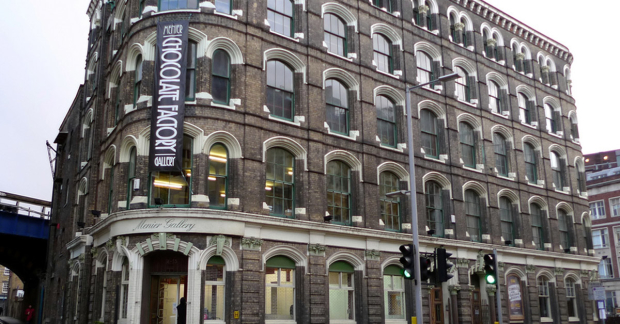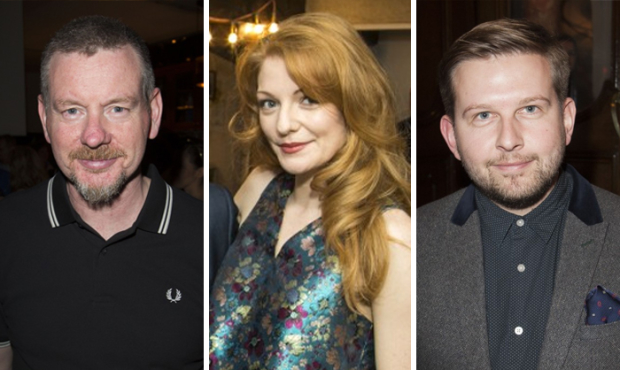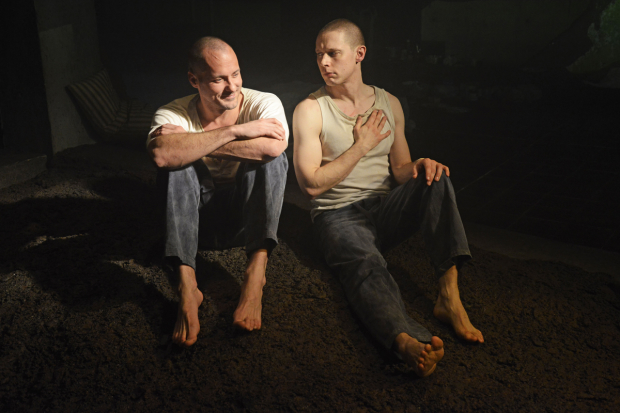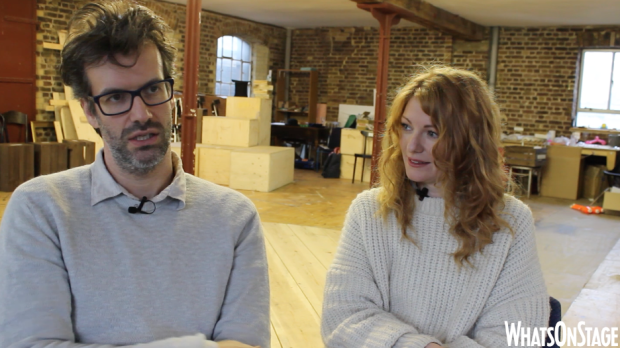Review: The Grönholm Method (Menier Chocolate Factory)

© Manuel Harlan
Welcome to Glengarry Glen Ross: the game show. Where David Mamet's 1984 classic sees four sales sharks competing to win a Cadillac bonus – whoever shifts the most real estate takes home the car – Catalan writer Jordi Galceran ups the stakes and removes the reality. The prize, in The Grönholm Method, is the sales job itself. The task: a bamboozling, destabilising psychological test. Written in 2003, two years before The Apprentice hit our screens, it's a shrewd little satire on a cutthroat corporate world that flashes a smile just to show you its teeth.
In a slick conference room overlooking Manhattan, four interview candidates are up for a high-end role at a Fortune 100-style firm. It's the fourth round, a group interview with a twist: one of the candidates is a stooge from HR. Their first task is to flush out the phoney. Smug-ass Wall Street sh*tbag Frank Porter reckons he sees the score: take no prisoners, show no mercy, last man standing gets the gig. Jonathan Cake, an actor with smackable, Superman features, is a nasty streak made flesh, albeit with insecurities niggling beneath.
Twitchy, talkative small-timer Rick Fisher, played by a jibber-jabbering, tic-tac-rattling John Gordon Sinclair, thinks it's all a trick, while old uni-mates, clever-clogs Carl Gardner (Greg McHugh) and poker-faced Melanie Douglas (Laura Pitt-Pulford) believe knowing each other gives them an edge. They're competing to demonstrate their collaborative skills – or are they collaborating to show their competitive streak?

© Manuel Harlan
Either way, that shard of suspicion grows into a groundswell of mistrust in BT McNicholls' production, as a string of tasks are served up by a mechanised drawer: ethical conundrums, prisoner's dilemmas and balloon debates. Watched, each candidate is caught between showing willing and scorn, empathy and edge. Pretty soon, they're scrapping like fat cats in a bag.
It's superficially compelling: a combination of whodunit and whowonit that asks you to spot the stooge, pick the victor and second guess the game. Though it's 15 years old, Galceran's play feels sharper today – with our personal lives laid out online and our workplace personas fixed in place. Tough times exacerbate everything he's after: the desperation of a precarious job market, the corporate ruthlessness concealed beneath a principled, caring façade. "I believe profit is everything", one candidate wavers, "but I also believe people are everything." The two are plainly incompatible, but by rubbing the personal and the professional together, Galceran creates sparks. Do you fire the employee undergoing gender realignment, or the divorcee battling clinical depression?
It chimes too, with our era of unreality, and Galceran amply – prophetically – demonstrates how destabilising our post-spin, post-truth world can be. When nothing's served straight, everything seems suspicious and it sends each candidate into a tailspin. Late capitalism runs us ragged. America's greatest truth, Carl opines, is that "reality is not real." You make of it what you will.
But there's a gloss to Galceran's writing – or at least to the translation by Anne Garcia-Romero and Mark St Germain – that lets us off the hook. Its wisecracks might be savage delights, but they make the whole thing feel inescapably glib. It is, after all, a trick shot of a play; one that repeatedly pulls the rug from under our feet. Eventually, you stop second-guessing it because it feels so contrived: every twist makes the outcome matter that much less.
















